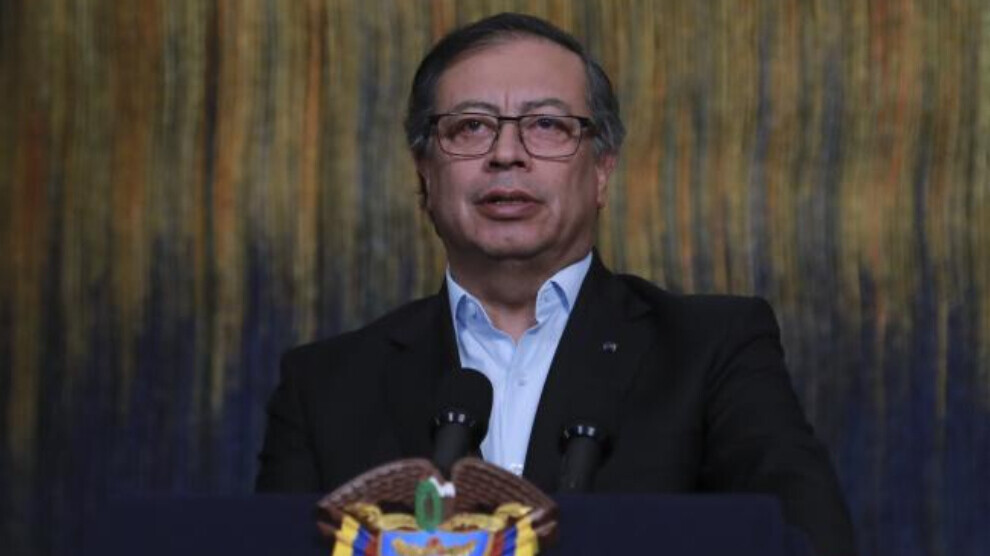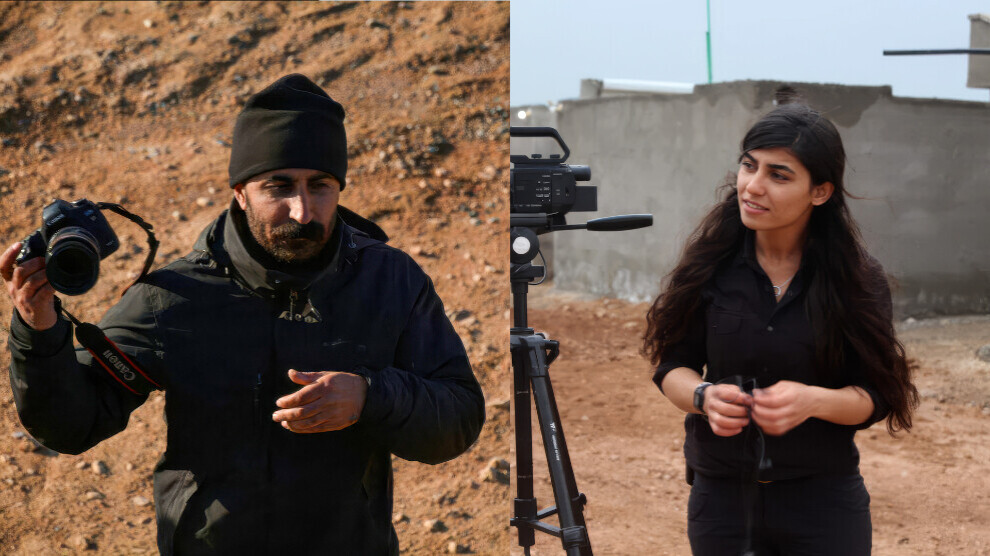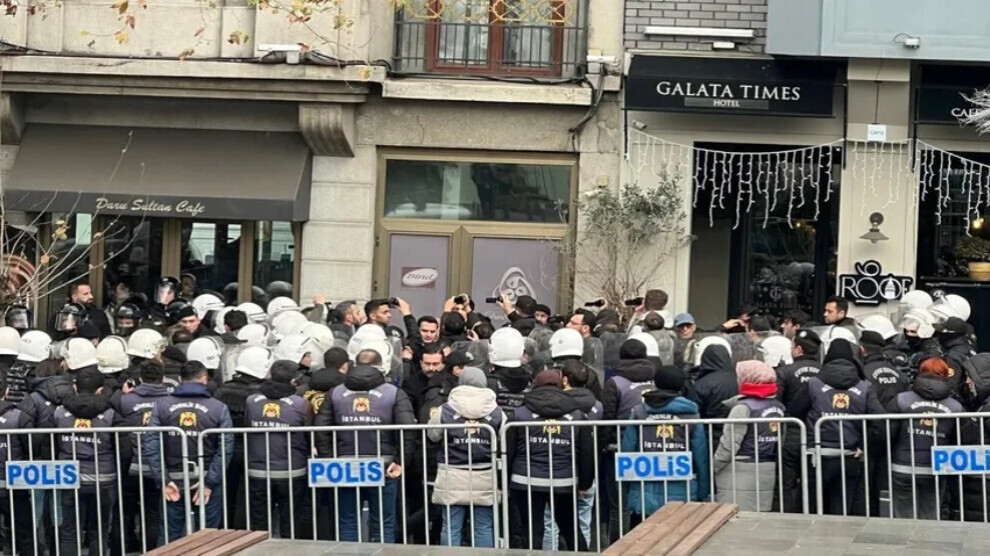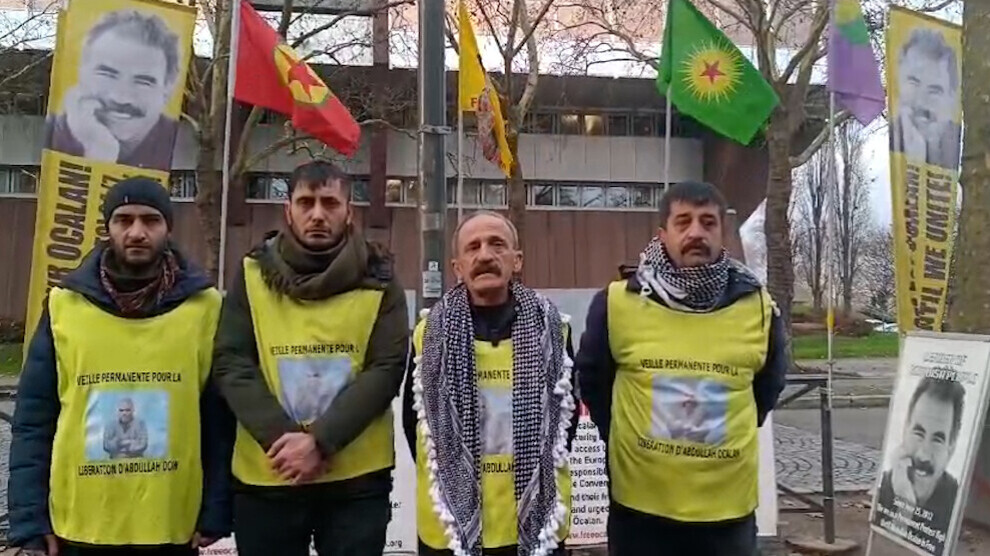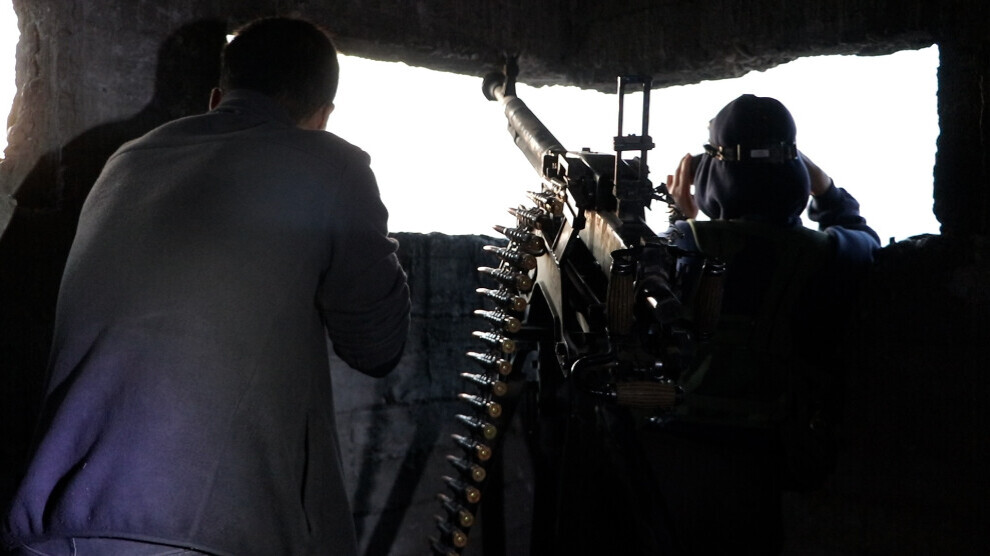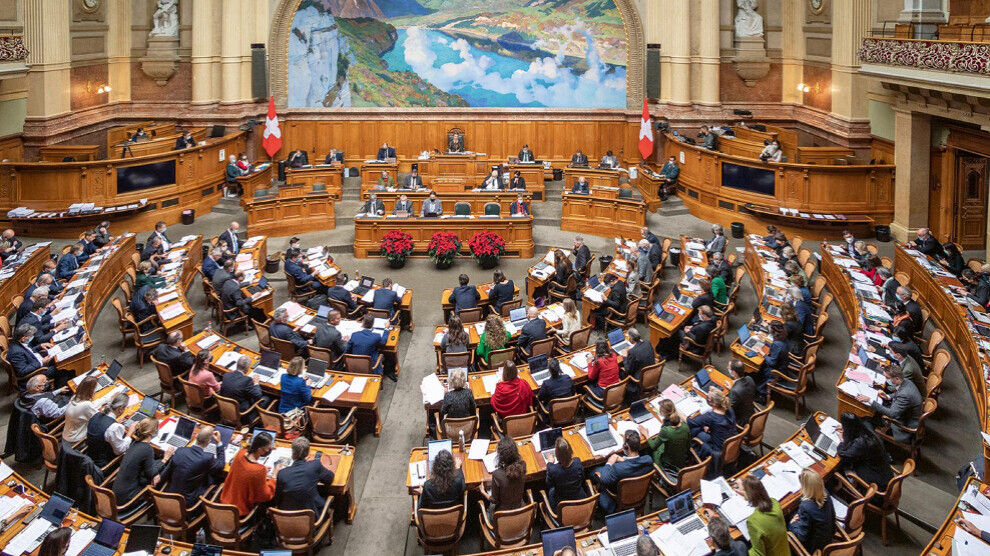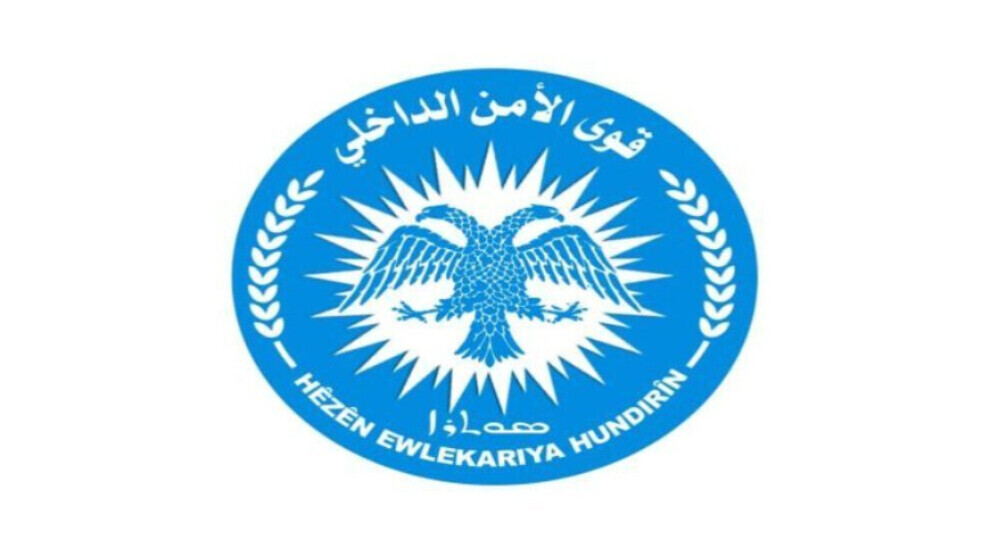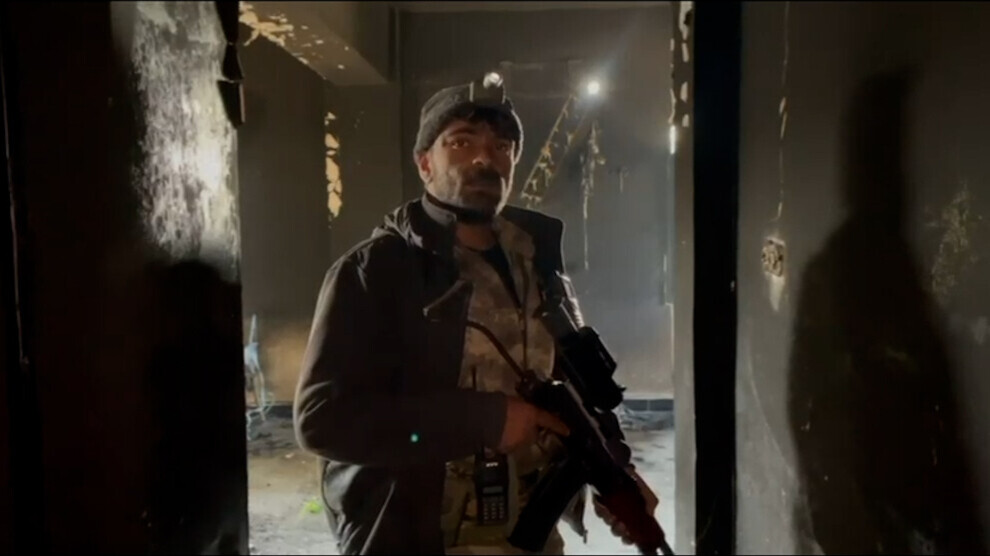Kobanê calls for resistance
What the Turkish state could not make ISIS do in Kobanê in 2014, it wants to do today under the name of SNA. Those who resisted on Miştenûr Hill back then are resisting on Qereqozax Bridge today. Kobanê calls for resistance today as it did yesterday.
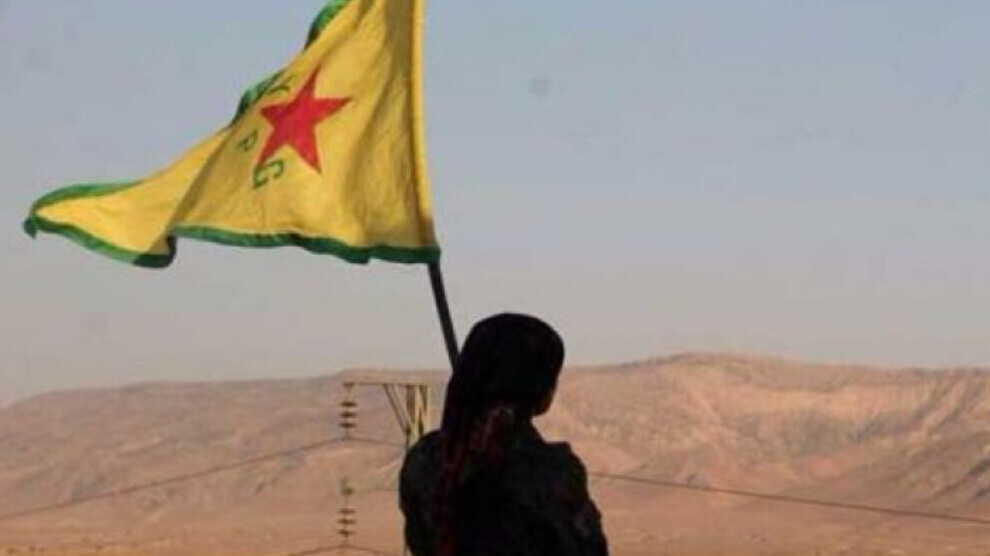
BARIŞ BOYRAZ
NEWS DESK
Thursday, 19 December 2024
Directed by the Turkish state, ISIS started its attacks on Kobanê from Qereqozax in 2014. The SNA, created as today's ISIS, is also targeting Kobanê today. The future of Rojava will once again be determined by those resisting in Qereqozax.
The words ‘Saet sisê kêm deh deqe Kobanê rizgar bû (Kobanê was liberated ten minutes to three o'clock)’ spoken by a YPG fighter created great hope all over the world. Those who did not blink an eye for Kobanê for 134 days welcomed this news with great joy. The meaning of these words for the Kurds was much different; it took its place in history as a great objection to the future that had been assigned to the Kurds. The Turkish state, which could not digest the fact that Kobanê did not fall, once again turned towards Kobanê after the fall of the Baath regime. This time, instead of ISIS, the Turkish state apparatus created under the label of SNA (Syrian National Army) was put forward. The target is the same; the free and equal life of the Kurdish people in their own homeland embodied by Kobanê and the status they have laid the foundation for this. So how was the Kobanê Resistance shaped and what happened in those days?
Administration based on self-defence
The ‘Arab Spring’, which started in Tunisia in 2011 and spread across the Middle East in a short time, soon spread to Syria. Against the civil war throughout Syria, those who defended Kurdish People's Leader Abdullah Öcalan's 3rd Way line declared the Rojava Revolution on 19 July 2012. The peoples of the region, led by the Kurds, who shaped their living spaces in the Cizîrê, Afrin and Kobanê cantons with a democratic women's libertarian paradigm based on self-government, implemented a form of governance that would set an example for the whole world.
The unleashing of ISIS on Rojava
On the other hand, ISIS was advancing both in Syria and Iraq. Having turned Turkey into a connection point, ISIS was driving its recruits from all over the world against the peoples in Syria and Iraq, taking over entire cities. As of mid-2014, it was rumoured that ISIS would take action to capture Damascus, the capital of Syria. This attack was considered a certainty, but ISIS advanced on Kobanê, the reason for which would be understood later, and which had no strategic importance for it. Later on, important figures of ISIS captured by the YPG and YPJ forces would confess that the Turkish state had directed them towards Kobanê. Although it was of no importance to ISIS, Kobanê was important for the Kurds, connecting the Afrîn and Cizîrê cantons. It would later be understood that the Turkish state used ISIS in its attempt to destroy the Kurdish gains.
Human will against conventional weapons
ISIS turned its steps towards Kobanê as of 15 September. Its goal was to occupy Kobanê in a short time, as it had done in many parts of Syria and Iraq. ISIS advanced on Kobanê with the conventional weapons it had captured in Iraq and Syria. What the YPG and YPJ forces, who decided to resist ISIS, had, were their individual weapons and human will. In fact, what started in Kobanê on 15 September 2015 was a battle of will.
ISIS started from the Qereqozax Bridge
On 17 September, ISIS captured the Qereqozax Bridge, which has been on the agenda of late with the attacks of the Turkish state-affiliated SNA. Qereqozax Bridge is 32 kilometres from the city centre, southwest of Kobanê. After this development, which directly means the security of Kobanê, ISIS started to advance towards the city centre with attacks against the villages of Kobanê. As of 2 October, 350 of the 354 villages around Kobanê had been occupied. ISIS started to hit Kobanê city centre with mortars, tanks and rockets it had captured from the Iraqi army.
Arîn Mirkan changed the fate of war
On 3 October, ISIS elements reached Miştenûr Hill, which overlooks Kobanê. Arîn Mîrkan, one of the YPJ commanders, carried out an action of self-sacrifice on Miştenûr Hill on 5 October. The sacrificial action of a female militant shocked the misogynist gang. It was also a great invitation to resistance for the Kurdish people and their friends. Although ISIS was slowed down here, it continued to approach the city with the support of the Turkish state. Kobanê was surrounded by ISIS on three sides and the Turkish army in the north. ISIS attacked the city from three sides and used the Turkish border as it wished. Even the aid that the people wanted to deliver to the city was prevented by the Turkish government. ISIS occupied half of the city centre.
Öcalan’s historic call
During the meeting held in İmralı on 22 September, Kurdish leader Abdullah Öcalan said: “Regarding the ISIS attacks, all our people need to shape their lives against the ongoing high-intensity war. There is a high intensity war going on in Kurdistan at the moment. Not only the people of Rojava, but also the Kurdish people in the North and all parts need to mold their lives accordingly. I call on all Kurdish people to take up resistance against this high-intensity war.” This call and Leader Öcalan’s second message ‘There must be resistance until the end’ in his meeting with his brother Mehmet Öcalan on 6 October mobilised the Kurdish people.
Fences of the border drawn by the rulers 100 years ago were removed
Vigil actions started just across the border of Kobanê. The people of Northern Kurdistan flocked to the border in a spirit of mobilisation. The fences of the border drawn by the rulers 100 years ago were removed. Hundreds of young people from Northern Kurdistan crossed the border to shoulder the resistance. Kurdish people almost stopped life and flocked to Kobanê.
Kobanê resistance became universal
More than a million people in more than 100 countries took to the streets and declared their support for the Kobanê resistance. Internationalists, revolutionaries, left-socialist forces and women declared their support for the historic resistance against the ISIS gang. The resistance that started in Kobanê was embraced by the Kurdish people with the call of Leader Öcalan and became universal in a short time.
Kobanê did not and will not fall
The last straw was Erdoğan's words ‘There, Kobane is about to fall’. The uprising for Kobanê, which started on 6 October all over Northern Kurdistan, was raised even more with these words. People in the cities of Northern Kurdistan stopped life until 9 October. The state was almost paralysed in Northern Kurdistan. In the cities of Turkey, on the other hand, the vigil action continued day and night. The protests of the Kurdish people, who gave a clear message that ‘Kobanê did not and will not fall!’ spread to 35 cities and 96 districts. With the attacks of the state, 46 people lost their lives, 682 people were injured and 323 people were imprisoned. The border between the two parts of Kurdistan was de facto abolished.
Kobanê was liberated ten minutes to three o'clock
On an international scale, mass protests were organised from North America to Asia, from Europe to Latin America, calling on international powers and states to take action against the darkness of ISIS. Thus, following the increasing pressure and resistance on the ground, the US-led International Coalition provided air support to the YPG and YPJ forces against ISIS. Afterwards, Kobanê started to be cleared from ISIS. Kobanê was liberated at 14.50 on 19 January 2015, exactly 134 days after the attacks started on 15 September 2014. A YPG fighter said, ‘Saet sisê kêm deh deqe Kobanê rizgar bû’ (Kobanê was liberated ten minutes to three o'clock) and gave good news to humanity. This was the beginning of the end for ISIS.
Kobanê once again calls for resistance
In the 10 years that have passed since, an exemplary way of life for the whole world has been manifested in Kobanê. Progressive forces all over the world point to the resistance in Kobanê as an example. Books were written and films were made on Kobanê. The peoples of the region, led by the Kurdish people, have shown that resistance independent of conditions and circumstances is absolute victory. The Turkish state, on the other hand, wants to do today under the name of SNA what it could not do then with ISIS. Those who resisted on Miştenûr Hill that day are resisting on Qereqozax Bridge today. Kobanê once again calls Suruç, Northern Kurdistan, internationalists and the peoples of the world to resistance.

YPJ commander Sarya Efrîn: We will defend Kobanê together with our people
YPJ commander Sarya Efrîn said: "The people and their fighters will protect Kobanê and its lands together."
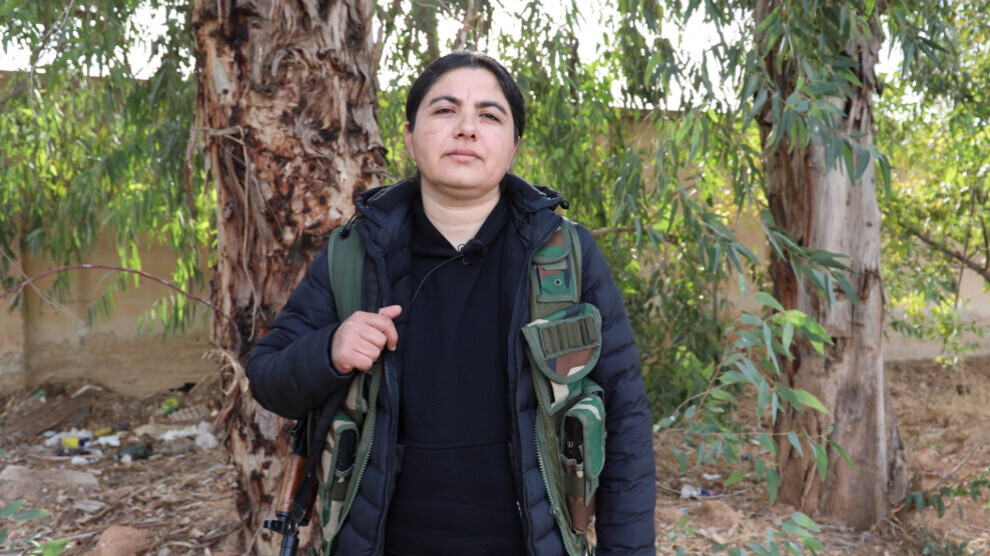
NÛJIYAN ADAR
QAMISHLO
Wednesday, 18 December 2024
YPJ commander Sarya Afrin told ANF that resistance against the Turkish state is growing every day. "We are fully prepared for any attack targeting Kobanê. Kobanê is the fortress of resistance, and the fortress of resistance will never fall."
Commander Efrîn noted that the peoples of Northern and Eastern Syria and Syria as a whole are going through difficult times. She said: "Our revolution has been ongoing since 2012. Since then, we have lived together as peoples, struggled, and endured hardships. The Turkish state, which is the enemy of the people, could never accept the brotherhood of peoples, the stability in the region, or the people's ability to govern themselves and determine their own will. Afrin, Serêkaniyê, and Girê Spî are the results of this intolerance. Today, it is Shehba and Manbij. For some time now, there have been intense attacks on Manbij. We have not forgotten how the people of Manbij welcomed us during ISIS attack on the city in 2016. Women, especially, ran to embrace the fighters. That image is still in our memory. Hundreds of people from this region joined the YPJ, YPG, and SDF and have walked with us until today."
A great resistance was displayed in Manbij
Commander Efrîn added: "We cannot blame the entire people of Manbij for the current situation. Many valuable, freedom-loving people live in Manbij. However, some individuals, who have been deceived by the Turkish state, and used as its tools, are unaware of what awaits them. They will see what they will face in the future. A great resistance was displayed in Manbij. To this day, our comrades are in tunnels and among the people. The greatest example of this is the Tishreen Dam and Qereqozax. Those who captured Idlib, Aleppo, and Damascus in a single day have not been able to cross Qereqozax or the Tishreen Dam for days, despite it being a small area. Neither the Syrian army, nor Russia, nor Iran could stand in the face of this power. However, we, who are aware of the enemy's reality, have been resisting in Tishreen and Qereqozax for days with our faith in our own strength."
Arab people must not forget the suffering caused by Turkey
Addressing the people of Manbij, Commander Sarya Efrîn said: "Manbij is a model city in Northern and Eastern Syria where peoples live together. The Arab people, in particular, should know the history of the Turkish state and be aware of its reality. Our Arab people have suffered as much as the Kurdish people at the hands of the Turkish state. Therefore, we must not forget our past, our experiences, and our history. The approach towards Arab women in Turkey, the violence against Arab youth, and the exploitation of Arab labor is there to see. The Turkish state has never once thought about a nation other than its own, let alone about the Arab nation. If we adapt this situation to today, the massacres, rapes, and looting that occurred when gangs entered Manbij are clear, and this is just the beginning. We must be vigilant against the policies of the Turkish state and its gangs, which disregard the rights of the people and focus on genocide. International forces, on the other hand, are growing at the expense of the blood of the Syrian people and do not hold the Turkish state accountable. They are in a position of watching this war. We are ready to give our lives to protect these people."
Those who claim to be anti-regime serve the Turkish state
Commander Efrîn emphasized that those who call themselves "anti-regime" today have turned into mercenaries of the Turkish state, and added: "At the start of the Syrian crisis, there were those who claimed to be anti-regime and genuinely fought against it, giving their lives for the revolution. However, after a while, the opposition fell under the control of the Turkish state, and their opposition to the regime disappeared. They became tools of the Turkish state, acting for personal and Turkish state interests. We saw how those who called themselves opposition were sent to countries like Libya. Even today, they continue to serve the policies of the Turkish state. The Syrian opposition must return to the revolutionary spirit of 2011. In the early days, those who demonstrated for democracy, justice, equality, and rights are now serving the Turkish state. The overthrow of the Syrian regime by HTS and the subsequent revolutionary atmosphere pose a great danger to the peoples of Syria. Those who call themselves the opposition are fighting against us in line with the Turkish state's goals. One day, they will realize the mistake they have made, but by then, it will be too late for them."
YPJ is a leading force
Commander Efrîn highlighted the leading role of YPJ fighters in the resistance, and said: "As in every operation and attack, YPJ fighters are leading the resistance in Tishreen and Qereqozax. These areas have faced intense attacks, and great sacrifices have been made, but there has not been a moment of retreat. For days, with great determination and courage, YPJ fighters have been resisting on the frontlines. Our comrades, who joined the YPJ ranks at a young age out of patriotism and are still young, continue their struggle. They feel in their bones that this is a battle for existence. Our young comrades make great sacrifices to protect their people and their land. Despite intense reconnaissance strikes, inhumane methods used in tunnels, cold weather conditions, and limited resources, they show tremendous resolve. They fight in their positions, locked into victory. We have lost young comrades, but they did not accept surrender even until their last breath."
Heavy deployments on the borders
Responding to Turkey's threats against Kobanê, Commander Sarya Efrîn said: "If the Turkish state were so committed to its history, it would have defended the tomb of Süleyman Shah when ISIS gangs attacked Kobanê. It was the YPJ-YPG forces that liberated those areas. Now, they use this tomb as an excuse for threats of attack. They are not even aware that these threats will be their end. As the fighters of this people, we have promised to either protect our people or become martyrs on this path. We have not forgotten this promise, and everyone will see how the Turkish state will collapse. We earned every inch of this land with the blood of our comrades, and we will not give it up easily. Heavy deployments are being made to all border areas, especially Til Temir, Tirweziyê, and Ain Issa. With our own strength and the spiritual power we receive from our people, we are organized in every village, city, house, neighborhood, street, and corner, and we are ready to defend our people. As we said before, we will guarantee success through the Revolutionary People's War. If they attack Kobanê, they will face this Revolutionary People's War. The people and their fighters will defend Kobanê and its lands together in every position. We are fully prepared for any attack against Kobanê. Kobanê is the fortress of resistance, and the fortress of resistance will never fall."
Attacks help ISIS to organize
Commander Efrîn underlined that ISIS is attempting to revive itself in Syrian territories and that international powers remain silent despite knowing about Turkey’s support for it. She said: "ISIS benefits from the Turkish state's attacks. While we were the ones who destroyed ISIS, the dark force that became a global threat, the Turkish state, which created ISIS, attacks us and takes revenge for ISIS. The Islamic State members held in prisons and their sleeper cells are reorganizing through Turkish state attacks. These reorganizations target the region's security and aim to create fear among the people. Due to Turkey’s attacks, it has become impossible to develop the fight against ISIS. As attacks continue, there will not be time to secure the prisons. With these attacks, the situation in prisons is unpredictable, and the relevant powers are turning a blind eye to this. Additionally, ISIS elements still exist within HTS and Turkish state mercenaries, and they are organizing sleeper cells. Therefore, the danger we face is greater than anticipated. The Coalition forces must fulfill their duties and responsibilities in the fight against ISIS. They must also stand against the gangs that are reviving ISIS and activating its sleeper cells."
Join the struggle with a revolutionary spirit
The YPJ commander called on the peoples of Northern and Eastern Syria, saying: "A heavy war is ongoing. Those fighting are the children of this people. As always, our people must stand by their children and never withhold their moral support. Those who can carry arms should carry arms, those who can heal the wounded should treat the injured, those who can provide information should share it. In other words, everyone must join this war with a revolutionary spirit, doing whatever they can. If today ISIS has been stopped, if a great war has been fought against the Turkish state, and if we have made the Kurdish people's and other peoples' struggle known around the world, it is thanks to our people’s support. Today is the day to protect our values, the day to be worthy of our martyrs. To teach the Turkish state a great lesson, young people must take up arms and join the ranks of the YPJ-YPG-SDF."
